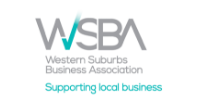The end of the FBT year is fast approaching, and employers may notice that their FBT bill is running a little higher than usual.
The reason for this is that the FBT rate has been raised from 46.5% to 47%, along with increases to type 1 and type 2 gross-up rates. From April 1 2015 the FBT rate will increase again to 49%.
This increase to FBT is being introduced to prevent high-income earners from avoiding the temporary 2% deficit levy by increasing their non-cash benefits. It will remain in place until March 31 2017, the same calendar year that the deficit levy is set to expire.
While these increases to FBT may seem small, they can accumulate to increase your business’s tax liability by a significant amount. Here are a couple of ways that you may be able to reduce your FBT bill:
There are several types of benefits that do not attract FBT, for example, some types of living away from home expenses and cars where there is no personal use component. Laptops and personal electronic devices that are used primarily for work purposes are also exempt from FBT.
However, there is a limit of one for each employee per FBT year, and you must be able to prove that it is used primarily for work purposes.
You may care to consider providing your employees with expense payment benefits that satisfy the ‘otherwise deductible’ rule. The ‘otherwise deductible’ test is satisfied when the benefit provided is one that the employee would have been able to claim as a legitimate deduction from their own taxable income.
Where an employee makes a contribution towards a benefit from their after-tax income, then this will reduce the employer’s FBT liability. If the employee’s contributions reduce the FBT liability to zero, then it may be possible for the employers to avoid paying FBT and lodging an FBT return.
There is always the option of replacing an employee’s benefits with an increase in their cash salary. This means that the income will be taxed at the employee’s marginal tax rate, and you will not have any FBT liability.
In some circumstances, minor benefits may be exempt from FBT. This will occur in the event that: the value of the benefit is less than $300 per employee (including GST), the benefit is provided on a one-off or infrequent basis, or if it would be unreasonable to treat the minor benefit as fringe benefit.
Employers who are interested in making the most of the minor benefit exemption should note that the exemption is only available if your business is using the Actual Method of valuing entertainment benefits.
Please Note: Many of the comments in this article are general in nature and anyone intending to apply the information to practical circumstances should seek professional advice to independently verify their interpretation and the information’s applicability to their particular circumstances.







